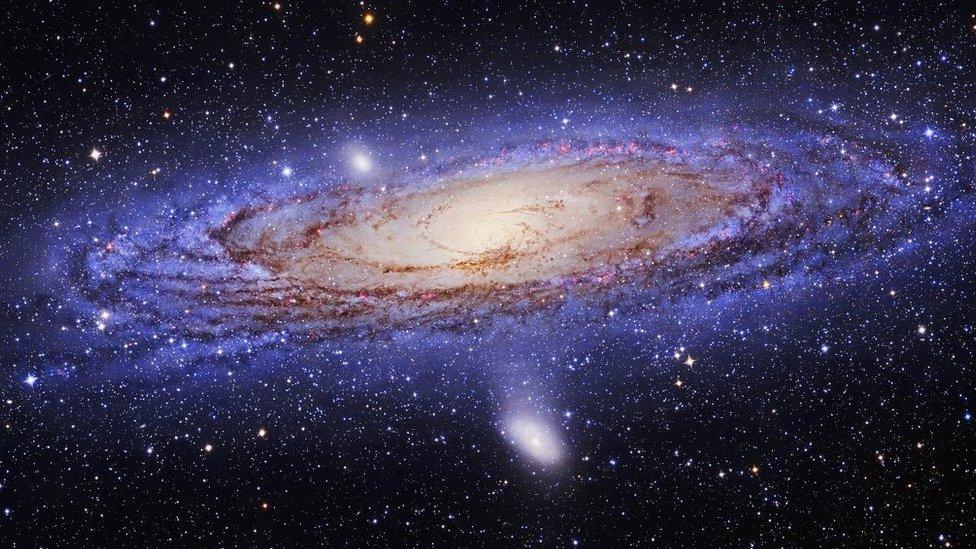Astronomy: What is it?
- Published

If it's a dark clear night sky you might be able to spot the Andromeda Galaxy with just your eyes!
Have you ever looked at the night sky and wondered about the stars and planets up there? Well then you're probably a budding astronomer!
Astronomy is the study of stars, planets, comets, galaxies, space and anything else outside of the Earth and its atmosphere.
When is the best time of the year to go stargazing?
Anyone can get into astronomy - just pick a night where there's a clear dark sky and if you look up you're likely to be able to see the moon and the brightest planets of our solar system.
WATCH: A beginner's guide to astronomy
With binoculars you can take a closer look at the Moon. It has craters, scars, and smooth areas of cooled down lava.
The line where the light side meets the dark side of the Moon is called the terminator, and it's the best place to look for craters.
Here's an image of Saturn taken by a powerful space telescope - and you might be able to see it with a binoculars too.
You can see different planets at different times of the night too.
You can see Saturn's rings, and the patterns and bands of different colours across Jupiter.
Using a free app on your phone will also help you know what you're seeing when you look up at the night sky.
You can see patterns of the brighter stars in the sky called constellations, like Orion or the Great Bear.
Meteors, meteorites, asteroids and comets - what's the difference?
And you might also be able to see a meteor which happens when a small bit of space rock falls down to Earth and burns up in our atmosphere.
- Published13 February 2023
- Published20 July 2019
- Published29 July 2019
- Published27 September 2023
- Published4 June 2019
